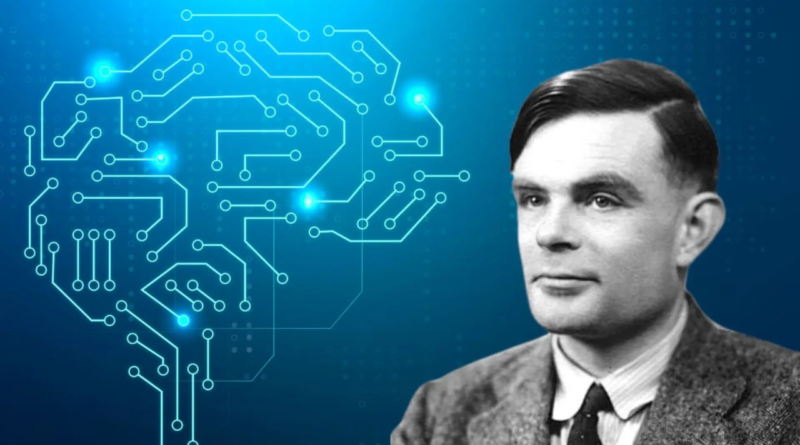Who Gave Birth to AI? The Innovators Who Changed the World
Artificial intelligence (AI) has become an integral part of modern life, driving advancements in industries ranging from healthcare and transportation to entertainment and finance. But behind this revolutionary technology lies a fascinating story of visionaries, mathematicians, and engineers who dared to dream of machines that could think, learn, and solve problems like humans. This article delves into the history of AI and highlights the innovators who laid the foundation for this transformative field.
The Early Visionaries: Philosophical Beginnings
The concept of artificial intelligence can be traced back to ancient philosophy and mythology. Greek myths such as Talos, the mechanical man, and the Jewish legend of the Golem illustrate humanity’s long-standing fascination with creating artificial beings. However, the philosophical roots of AI were firmly planted in the 17th and 18th centuries, when thinkers like René Descartes and Gottfried Wilhelm Leibniz pondered the nature of human thought and the possibility of replicating it mechanically.
René Descartes’s famous proposition, “Cogito, ergo sum” (“I think, therefore I am”), inspired subsequent explorations into understanding consciousness and reasoning. Leibniz, on the other hand, proposed the idea of a universal language and a “calculus of reasoning,” which would later influence the development of formal logic—a cornerstone of AI.
The Mathematical Foundation: Alan Turing’s Contributions
The modern field of artificial intelligence owes much to Alan Turing, a British mathematician and logician often regarded as the father of computer science. Turing’s groundbreaking 1936 paper, “On Computable Numbers,” introduced the concept of a universal machine capable of performing any computation given the right instructions. This theoretical model, now known as the Turing machine, laid the groundwork for programmable computers.
During World War II, Turing played a pivotal role in breaking the German Enigma code, showcasing the potential of machines to solve complex problems. In 1950, he published “Computing Machinery and Intelligence,” a seminal paper that asked, “Can machines think?” and proposed the Turing Test as a way to measure a machine’s ability to exhibit intelligent behavior indistinguishable from that of a human.
The Dartmouth Conference: Birth of AI as a Discipline
The formal birth of artificial intelligence as a field occurred in 1956 at the Dartmouth Conference, organized by John McCarthy, Marvin Minsky, Nathaniel Rochester, and Claude Shannon. This gathering of brilliant minds marked the first use of the term “artificial intelligence” and set the stage for decades of research and development.
John McCarthy, often called the “father of AI,” developed the Lisp programming language in 1958, which became a primary tool for AI research. Marvin Minsky contributed significantly to early AI theories and applications, co-founding the MIT Artificial Intelligence Laboratory and exploring topics like neural networks and robotics. Claude Shannon, known as the father of information theory, provided a mathematical framework for communication and signal processing that underpins AI algorithms today.
Trailblazers of Machine Learning
As AI evolved, the focus shifted from rule-based systems to machine learning—the ability of machines to learn from data. Pioneers like Frank Rosenblatt and Geoffrey Hinton revolutionized this domain.
Frank Rosenblatt developed the Perceptron in 1958, one of the earliest models for artificial neural networks. While the Perceptron faced limitations, it inspired future innovations in deep learning. Geoffrey Hinton, often dubbed the “godfather of deep learning,” advanced the field significantly by refining neural network algorithms and introducing concepts like backpropagation. Hinton’s work laid the foundation for modern AI applications, including image and speech recognition.
AI in the Age of Big Data
The advent of big data and increased computational power in the 21st century brought a new wave of AI breakthroughs. Innovators like Fei-Fei Li and Andrew Ng played key roles in leveraging data to enhance machine learning capabilities.
Fei-Fei Li, a computer scientist and AI researcher, co-created ImageNet, a large-scale visual database that became instrumental in advancing computer vision. ImageNet’s annual challenges spurred the development of more accurate and efficient image recognition systems, influencing applications in fields like healthcare and autonomous vehicles.
Andrew Ng, a prominent figure in AI and co-founder of Google Brain, championed the use of deep learning to harness the power of big data. Ng’s work on neural networks and his efforts to democratize AI through platforms like Coursera have inspired countless researchers and practitioners worldwide.
Ethical and Philosophical Contributions
While technical advancements have driven AI forward, ethical and philosophical considerations have also shaped its trajectory. Visionaries like Norbert Wiener and Joseph Weizenbaum raised important questions about the societal implications of AI.
Norbert Wiener, a mathematician and the father of cybersecurity, warned about the potential misuse of intelligent machines as early as the 1940s. His writings emphasized the need for ethical guidelines in AI development. Joseph Weizenbaum, a computer scientist, created ELIZA, an early natural language processing program. Despite ELIZA’s success, Weizenbaum became a vocal critic of over-reliance on AI, arguing that certain human functions should remain outside the realm of machines.
Women in AI: Unsung Heroes
The contributions of women to AI are often overlooked, but their impact has been profound. Ada Lovelace, regarded as the first computer programmer, envisioned the potential of machines to go beyond mere number-crunching as early as the 19th century. In modern times, researchers like Grace Hopper, who developed the first compiler, and Cynthia Breazeal, a pioneer in social robotics, have pushed the boundaries of AI research.
The Global Impact of AI Innovators
The work of these innovators has transformed AI from a theoretical concept into a practical tool with applications in nearly every domain. Today, AI powers voice assistants, autonomous vehicles, personalized recommendations, and advanced medical diagnostics. It has also become a driving force in addressing global challenges, from climate modeling to disaster response.
However, the rapid growth of AI also raises concerns about its impact on privacy, employment, and decision-making. Ensuring that AI serves humanity responsibly requires continued innovation, collaboration, and ethical vigilance.
Conclusion
The story of AI is a testament to human ingenuity and the relentless pursuit of knowledge. From the philosophical musings of ancient thinkers to the groundbreaking contributions of modern scientists, the journey of AI has been shaped by individuals who dared to imagine a future where machines could augment human potential.
As we continue to push the boundaries of what AI can achieve, it is essential to honor the legacy of these innovators while addressing the challenges that lie ahead. By doing so, we can ensure that AI remains a force for good, changing the world for the better while staying true to the values and aspirations of its creators.




